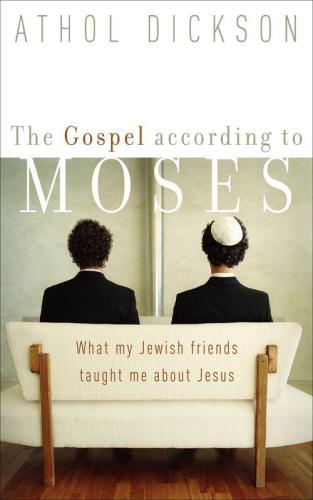
The Gospel According to Moses
What My Jewish Friends Taught Me About Jesus
کتاب های مرتبط
- اطلاعات
- نقد و بررسی
- دیدگاه کاربران
نقد و بررسی

March 24, 2003
"God loves an honest question," writes Dickson in what might be the thesis statement of this Bible-study-cum-interfaith book, a respectful exploration of what Christians might learn from their Jewish neighbors. For the last six years, Dickson, a CBA novelist whose latest fiction offering (They Shall See God) also featured some profound themes of Jewish-Christian dialogue, has participated in a Saturday morning Bible study at a local Reform synagogue. At first, he was horrified by the penetrating questions flying across the room, but he was also electrified by the candor. He felt himself drawing closer to God as he began examining his own assumptions. Dickson writes well, sprinkling the book with enough personal anecdotes to lend insight to the heavier textual analyses.

February 1, 2003
A Christian mystery writer, Dickson (They Shall See God; Every Hidden Thing) here offers a nonfiction book on his spiritual odyssey as an evangelical Christian participating in a Jewish Bible study group. Dickson attended a "Chever Torah" for several years at a large Reform Jewish synagogue at the invitation of a friend. Here he received the background needed to cast a woman Reform rabbi as a protagonist in They Shall See God, but, more important, he also learned "about the stubborn tendency of our religions to focus on preconceived notions instead of really listening to each other." He discusses the Midrash and Talmudic literature extensively in terms of Christian evangelical theology's perspective on the messianic prophecies of the Old Testament. Fairly extensive descriptions of the group's discussions make this book more scholarly than personal. From Reform Judaism Dickson learns how to ask questions and face difficult paradoxes within his own faith. Though he makes a strong statement of Christian faith in the final chapters, he does not proselytize. This book will appeal to students of comparative religion; for large public and academic libraries.-Richard S. Watts, San Bernardino Cty. Lib., CA
Copyright 2003 Library Journal, LLC Used with permission.

February 1, 2003
Like Jane Jacobs, James Howard Kunstler, Ray Oldenburg, and other urban visionaries, Jacobsen sees the city as a hopeful place, where community, tradition, and beauty come together on a human scale--a vision that an eclectic mix of architects, city planners, and sociologists has recently promoted as the New Urbanism. Jacobsen offers a distinctly Christian perspective on this phenomenon, looking to the Bible to develop a theology of the city. He believes that Americans' love affair with the automobile has undermined the social fabric by offering a false promise of independence while contributing to the impersonal nature of much of American society. He discusses the dangers of urban sprawl, the soul-numbing architecture of the late twentieth century and its devastating effects on communal identity, and the lack of appropriate public space in American cities. Jacobsen has much to say about how we got into the present predicament and what to do to change it, and by resurrecting the notion of the "good" city, he proffers the conception of the city as a spiritual place.(Reprinted with permission of Booklist, copyright 2003, American Library Association.)

























دیدگاه کاربران